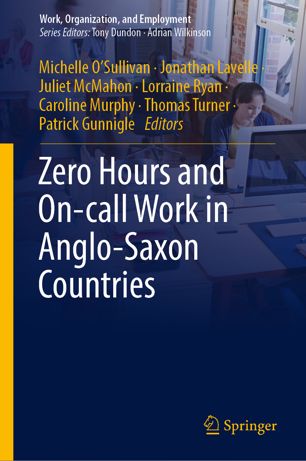

Most ebook files are in PDF format, so you can easily read them using various software such as Foxit Reader or directly on the Google Chrome browser.
Some ebook files are released by publishers in other formats such as .awz, .mobi, .epub, .fb2, etc. You may need to install specific software to read these formats on mobile/PC, such as Calibre.
Please read the tutorial at this link: https://ebookbell.com/faq
We offer FREE conversion to the popular formats you request; however, this may take some time. Therefore, right after payment, please email us, and we will try to provide the service as quickly as possible.
For some exceptional file formats or broken links (if any), please refrain from opening any disputes. Instead, email us first, and we will try to assist within a maximum of 6 hours.
EbookBell Team

0.0
0 reviewsThis book focuses on zero hours and on-call work as an extreme form of casual and precarious employment. It includes country studies of the USA, Canada, Australia, the UK, New Zealand and Ireland, where there has been increasing concern about the prevalence of such work, and working time uncertainty, as well as varying levels of public policy debate on regulation. The book incorporates a comparative review of zero hours work based on the findings of the country studies. This pays particular attention to state regulatory responses to zero hours work, and incorporates the sociological concepts of accumulation and legitimation functions of the state.
Exploring the regulation of zero hours work beyond individual countries, the book includes an analysis of external regulation of zero hours work at the supranational level, namely the European Union and ILO.
Further, it assesses the implications of zero hours for workers in new sectors of economic activity, particularly the impact of the platform or ‘gig’ economy on the fundamental nature of the employment relationship. It also considers the societal implications of zero hours work and the ethical responsibilities of employers and governments towards workers as citizens.